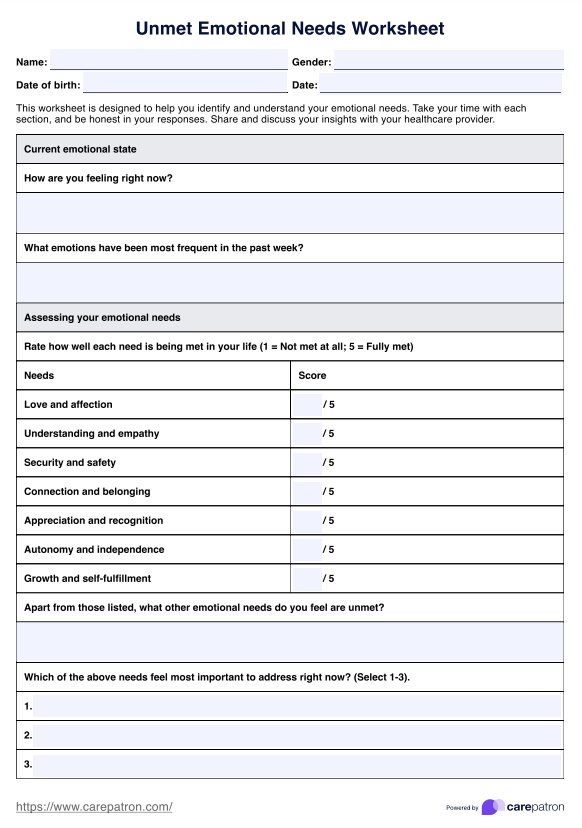Fulfilling unmet emotional needs involves self-awareness, communication, and seeking appropriate support. Techniques include engaging in meaningful social interactions, practicing self-care, and possibly seeking professional therapy.

Unmet Emotional Needs Worksheet
Download the Unmet Emotional Needs Worksheet to help patients identify and address emotional gaps effectively.
Use Template
Unmet Emotional Needs Worksheet Template
Commonly asked questions
Signs of unmet emotional needs include persistent feelings of sadness, loneliness, dissatisfaction, or relationship difficulties. Recognizing these feelings and reflecting on your emotional state can help identify unmet needs.
Unmet emotional needs can lead to mental health issues like depressive symptoms, relationship problems, low self-esteem, and unhealthy coping mechanisms, such as substance abuse.
EHR and practice management software
Get started for free
*No credit card required
Free
$0/usd
Unlimited clients
Telehealth
1GB of storage
Client portal text
Automated billing and online payments











